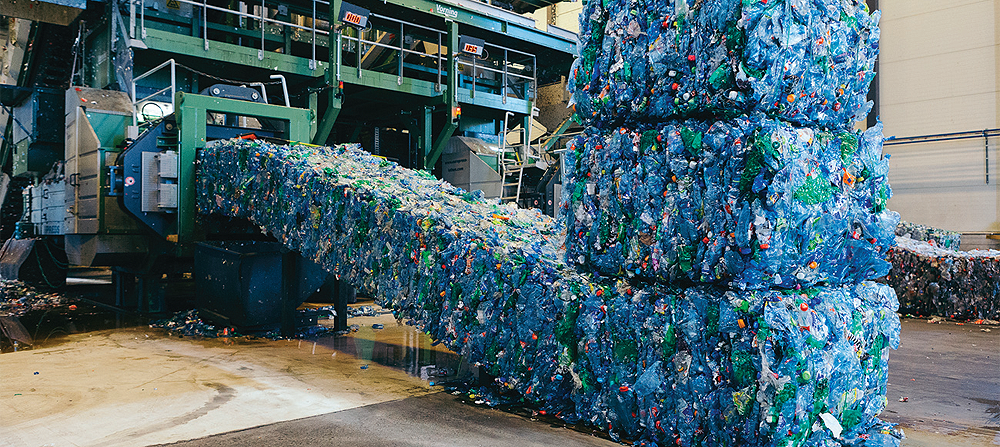
Infinitum
Infinite opportunities
2018 was another year of resounding success for Infinitum, as the operator of Norway’s deposit return system processed some 1.2 billion cans and bottles, advancing its ambition to be at the forefront of an emergent circular economy for plastic in the country
Infinitum’s initiatives in managing Norway’s deposit and recycling system for non-refillable beverage packaging, has made the company – founded by beverage producers and the Norwegian grocery sector in 1996 – a veritable worldwide sensation. Year after year, Infinitum has seen an increase in the number of bottles and cans being returned, and 2018 made no exception. Last year, Norwegians returned a total of 1.1 billion cans and bottles, once again reaffirming the fact that the Nordic land runs the most efficient deposit return scheme in the world. There is no wonder then that lots of countries are eager to follow in Infinitum’s footsteps.
“Over the past 12 months, we have had visitors from 18 nations, looking to draw inspiration from our experience,” Managing Director, Kjell Olav Maldum proudly states. “Among our guests have been politicians, trade organisations, and large individual companies, such as Coca-Cola and Pepsi, to which we presented and explained our scheme’s framework and the regulations that we  follow, as well as how operations are run. What we have noticed, is that people are often focused on potential problems and threats, rather than on efficient solutions. In reality, there will always be challenges that have to be addressed, once the system is up and running.”
follow, as well as how operations are run. What we have noticed, is that people are often focused on potential problems and threats, rather than on efficient solutions. In reality, there will always be challenges that have to be addressed, once the system is up and running.”
Without any shade of doubt, the operation of a deposit return system is playing and will continue to play an important part of the solution to the plastic waste problem. As bottles are collected in a cost-efficient manner, this secures a high collection rate and a very high recycling rate due to a clean material stream. “Our present yield in recycling rate is above 92 per cent, which means that we can offer all Norwegian beverage producers and importers more than 80 per cent recycled material in their PET bottles,” Kjell Olav points out.
“In my opinion, 2018 was the year in which plastic litter was really recognised by practical policies,” he maintains. “The EU passed a ban on disposable articles made of plastic and introduced strict recycling requirements in record time. In the UK and France, for example, it looks like taxes and levies are going to be used to ensure that more plastic is recycled. That deposit return systems are gaining powerful momentum at this point in time, is reflected in the establishment of kindred schemes in England, Scotland, and Portugal.
“Things are starting to move in Norway, too, and I am confident that Norwegian politicians will shortly take us closer to a real circular economy for plastic. Though not the largest category, plastic bottles are perhaps the area where a real circular economy can be created fastest, by using simple measures,” Kjell Olav observes.
“Another major highlight of 2018 was that the deposit rate on bottles and cans went up for the first time since 1986, which certainly had a tangible effect, as collection increased by about three per cent, contributing to the higher number of items returned,” he continues. “The rate stands at NOK 2 now and this, aided by the deposit on large bottles, which has also risen to NOK 3, led to 94 million more bottles and cans being returned in 2018 than in the previous year. In total, 29,000 tonnes of plastic and aluminium were recovered, instead of ending up in landfill or in the nature.”
Bold intentions
Looking to speed up the process of creating a circular economy for plastic bottles, Infinitum took the decision to set up a new recycling plant for PET bottles in Heia, just beside the company’s processing facility outside of Oslo. With construction already in advanced phase, it is expected that the site will be ready for production in late 2020. Kjell Olav discusses the significance it will have for Infinitum’s future work: “We are set to become the first deposit return system in the Nordic region to recycle both plastic bottles and cans. The EU has set a target to the effect that all bottles must contain at least 30 per cent recycled material from 2030 onwards. With the new facility in Heia, the industry in Norway will achieve this goal in just a couple of years.”
Owing to the higher deposits and the effective communication strategy adopted by Infinitum, the company managed to achieve a collection rate of 87.3 per cent for cans and 88.6 per cent for PET in 2018. For this year, the goal is to pass the 90 per cent mark and Kjell Olav is sure that this will happen, which will also mean that Infinitum has met the EU’s target in this area some ten years earlier than what has been set by the Union. “We are even bolder in our intentions, as we are aiming at collecting 95 per cent directly through the scheme within the next five years and making sure that all of the collected material is used to make new bottles and cans.
“From a more external perspective, we find it crucial that politicians take decisions that incentivise the business to work more quickly and efficiently to solve severe environmental problems. The environmental fee placed on beverage containers is a good example. In the meantime, we are trying to get a material fee in place, in order to increase recycled content in beverage packaging. These are necessary steps as we embrace the idea that the best deposit return system should also be the world’s best starting point for creating a circular plastic system,” Kjell Olav concludes.